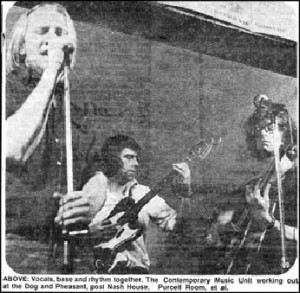Quotation of the day: “….our society doesn’t only produce artifact things, but artifact people… by getting them through this ritual which makes them believe that learning happens as a result of being taught; that learning can be divided into separate tasks; that learning can be measured and pieces can be added one to the other; that learning provides value for the objects which then sell in the market” Ivan Illich We the People interview 1996

I give the above quotation as an example of the thinking of the most radical educational philosopher of the 60s and 70s, to show that for some people there has been (still is?) a resistance to testing of any type. The view was based on a strongly social, typically socialist view, of how society should be run. Some arguments put forward were that people fail exams and so their self-esteem falls, that exams give a passport to a minority of desirable employments (e.g. medicine), and that lower socio- economic groups fare worst and so are discriminated against and excluded. The importance of such matters to society is not being denied here. But I do contest the argument against testing.
The reason is quite simple. In a small traditional society, people know each other. Word soon gets around that X is a good craftsman, while Y the fishmonger is not always scrupulous about the quality of what he sells (a real case in the Medieval City of London, when the offending tradesman was put in the pillory and his stinking fish burned under his nose).
But when villages of a few hundred become towns of 10, 20, 50 thousand people, they become more anonymous. So we need a way of assessing quickly the professional standard of the person before us. Though imperfect, examinations fill this role. They give some sort of guarantee of quality. We know, therefore, that a student who gets a Grade 8 in Piano Playing will have demonstrated a certain level of skill. There is much of importance that the exam does not tell us; for instance, is the skill of the student well beyond this level, or what exactly does the Examiner’s comment “ a sensitive interpretation” mean to a listener ? Typically we will need an audition to find out such things. But when there are limited places (for example in a Degree level Music course), the result allows us to reduce the list of candidates to manageable proportions, and to ensure that the students accepted will be likely to be able to cope with and profit from their course.
There are further factors which are relevant to a testing system. One is that, as society developed, there was an increasing need for professionalisation. Even in the Middle Ages the Guilds (and the Livery Companies in the City of London) took on the role of providers of specialist training, and monitors of standards (in so doing they also managed to arrange to have a monopoly. Testing was the route to becoming a “member of the club”).
Closely linked to this is the widespread strong desire of professions, and especially new ones, to acquire status by creating a system of tests which makes their claim to equality of respect much stronger. I can give two recent examples known to me. One the Blue Badge award of the Institute of Tourist Guiding, which guarantees a high standard of knowledge and competence. The other example is the range of examinations (for instance of the Registry of Guitar Tutors) which have gained official recognition and world wide respect for the skills required on, for example, the electric guitar, an instrument which in my first years as a musician was derided by the then arbiters of taste in the Classical world.
The need for testing becomes more acute as knowledge advances. It is clear that in medicine, for example, the most advanced specialists have knowledge which is only understood in general terms by many GPs, who are nevertheless excellent in their chosen work. In such a case, some sort of test, administered by specialists, is needed in order to guarantee competence and integrity to those who have no tools to judge by. Again, Music can provide us with an example. A person who has become highly specialised in Twelve Tone music does not have, just by virtue of that knowledge, the right to judge the quality and skill of electric guitarists using distortion effects. Their musical training may give them a better than average ability to perceive the nuances involved, but it certainly does not give the competence to judge , which requires both technical knowledge of what FX units they are and what they will do, and a broad experience of the results achieved by the many outstanding guitarists who have used the effects.
To sum up for today, then:
Testing (exams etc) is needed to give shape to training and to give a measure of skill to the wider world. It can also have the benefit of raising the public esteem of those trained.